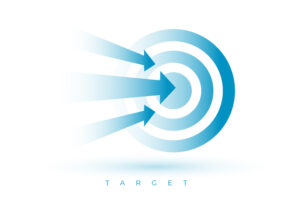4-Minute Read
We all know what it means to consume. But if you look at the definition of the word, you might be surprised:
- To destroy or expend by use; use up
- To eat or drink up; devour
- To destroy (again – emphasis mine), as by decomposition or burning
- To spend (money, time, etc.) wastefully
Is this picture of the American consumer that economists are talking about? If so, it can give you pause to think about where you fit into this story. Are you a wasteful destroyer and devourer? No way, right?
Spending money is deeply intertwined with consumption. After all, it usually takes money to acquire the things you’re apparently destroying. It’s awfully pessimistic to think about it like this. Spending is the same activity that keeps our societies humming and the fuel behind the innovations that continually improve living standards globally.
Using the world’s well-being to justify your spending isn’t particularly healthy either. There is a pervasive tension between the individual and the collective. As I go about my days advising individuals and families, I must admit that I prioritize helping you put your oxygen mask on first before helping others. At some point, everyone needs to have spending constraints. Even some celebrities file for bankruptcy.
Yet it’s not simply about spending less. That’s often a mathematical solution, and the planning nerd in me loves to see you improve your Monte Carlo scores. But it’s much more about how you spend in areas that bring value and satisfaction. It’s about fighting that instinct to spend to impress others or keep up with the Joneses.
But there’s another compelling reason to examine your spending habits. You do it to build your optionality. In a financial sense, how you direct your spending is the key to unlocking this power.
The group that takes the “spend less” approach to the extreme are those who embrace the FIRE (Financial Independence, Retire Early) concept. Here, you’ll find examples of people so dedicated to frugality that they retired incredibly young, often in their 30s. By saving at a high rate during their working years (and, by extension, spending less), they reached independence decades earlier than most.
There are plenty of critics of the FIRE folks. Common objections sound like this:
- They sacrifice too much and live like monks. I could never do that.
- They are free now because they had (or still have) an unusually high income.
- What they achieved requires a ridiculously high savings rate that isn’t practical for me and my family.
- What will they do with all their time if they’re not working?
Before we criticize the FIRE lifestyle too harshly, we should consider one aspect that is often overlooked: their significant level of optionality. I first encountered this concept in Nassim Taleb’s Incerto Series. Richard Meadows is one of my new heroes. He authored an entertaining book entirely devoted to this topic, filled with practical applications beyond personal finance.
Optionality is the right, but not the obligation, to take some action. Those who have deliberately constrained their lifestyles have found a way to eliminate the unessential from their lives. There’s some irony in that you can’t have maximum freedom in your life without simultaneously having the right constraints in place. As Meadows points out, constraints that are self-directed (and not imposed on you) can be liberating.
There are definite parallels to the minimalist movement. There’s an aesthetic to minimalism if it’s viewed the right way. It’s possible some FIRE folks go too far, but their frugality has also opened themselves up to more high-quality choices.
Should you choose to walk the FIRE path, it has different degrees of heat (pun intended). It’s not all or nothing. Nor does it require you to retire outright. Maybe it’s just how I frame the question with my clients, but most aren’t slaving away towards retirement. They simply want more work optionality.
Within the FIRE framework, you can return to work if you want, in a field of your choice, at your chosen hours and intensity. You can start a business or travel. You can do nothing if you’re like Peter Gibbons, the protagonist in the cult classic movie Office Space. Within reason, you can do anything you want that gives you meaning and purpose. By spending less, you create more options. You’re more flexible and nimbler to adapt to whatever life throws at you or if you simply change your mind about your current path.
Contrast that feeling to one where you are in heavy debt, particularly consumer debt like credit cards. High debt servicing obligations give you fewer options, creating negative optionality. Forget about saving money. You are just trying to stay afloat and keep credit card balances (with outrageous APRs) from growing higher. If you’re too far down this path, bankruptcy may be the only choice, and even that likely won’t solve the behavior that created the problem in the first place.
I have a soft spot in my heart for those who find themselves in an oppressive debt situation. Everyone has their own story of how it happened. In many cases, it results from people trying to exploit options before properly creating them in the first place. The order of operations means everything here. You must build optionality first before exploiting it. Very few people can get away with doing the opposite.
If what you have read so far makes you feel it’s time to change something about your spending habits, that’s great. But I’ll invite you to slow down first and respect the obstacles in front of you. Meadows, our optionality expert, puts it this way:
“We’re all pounding away on the hedonic treadmill. As soon as we reach the object of our desires, panting with exertion, it cranks up to a steeper incline, shifting the goalposts further away. Contentment dangles tantalizingly in front of us, forever just out of reach.”
In an upcoming blog, we’ll expand on this thread by examining the hurdles to building financial optionality into your life. We’ll also look at how you can better exploit that optionality once you’ve attained it. Hint: Not all spending is created equal.
If you have comments or questions on this piece, please drop me a line at: [email protected]
References
- https://www.dictionary.com/browse/consume
- https://krishnawealth.com/two-ways-of-quantifying-your-retirement-readiness/
- https://www.investopedia.com/terms/f/financial-independence-retire-early-fire.asp
- https://www.penguinrandomhouse.com/series/INO/incerto/
- https://thedeepdish.org/optionality-book/?nab=4
- https://krishnawealth.com/is-a-dose-of-minimalism-the-cure/
The information on this site is provided “AS IS” and without warranties of any kind either express or implied. To the fullest extent permissible pursuant to applicable laws, Krishna Wealth Planning LLC (referred to as “KWP”) disclaims all warranties, express or implied, including, but not limited to, implied warranties of merchantability, non-infringement, and suitability for a particular purpose.
KWP does not warrant that the information will be free from error. None of the information provided on this website is intended as investment, tax, accounting or legal advice, as an offer or solicitation of an offer to buy or sell, or as an endorsement of any company, security, fund, or other securities or non-securities offering. The information should not be relied upon for purposes of transacting securities or other investments. Your use of the information is at your sole risk. Under no circumstances shall KWP be liable for any direct, indirect, special or consequential damages that result from the use of, or the inability to use, the materials in this site, even if KWP or a KWP authorized representative has been advised of the possibility of such damages.
In no event shall KWP have any liability to you for damages, losses, and causes of action for accessing this site. Information on this website should not be considered a solicitation to buy, an offer to sell, or a recommendation of any security in any jurisdiction where such offer, solicitation, or recommendation would be unlawful or unauthorized.





